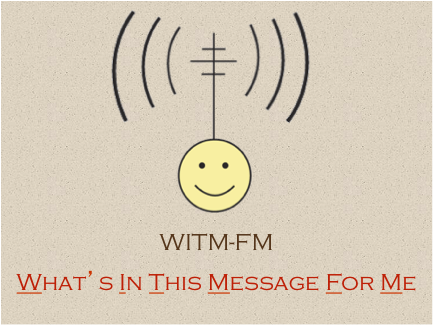The most powerful communication tool at your disposal is not speaking but listening. You’ll communicate well when you listen well.
The reverse plays out often, and most of us have experienced it. You meet someone at a conference. As you are reading the person’s name badge, you engage him in friendly conversation: “Hello, Fred what do you do?” Five minutes later Fred has not stopped for a breath! You are wondering how you can escape without being rude.
This person has demonstrated no interest in you at all. You feel trapped and develop a desperate need to leave him to get out of the conversation. If he had engaged with you in return – showing interest through dialogue instead of monologue – you would have a different opinion of him entirely. In fact, if he had built rapport with you, then you would probably still be engaged in an interesting discussion.
Responsible Listening
A key to effective communication is listening to the other person. Of course, if you want to listen to the other person, you have to give them opportunity to speak. This why our module on Communicating for Impact recommends the following:
Speak in short segments; it allows you to come up for air and provides space for the other person to say something and;
Ask questions of the other person.
When you have a message to convey, effective listening communicates the value of what you have to say; in other words, through listening you are able to have answer the other person’s primary question: “What’s in this message for me?” (WITM-FM).

WITM-FM may seem selfish, but it’s not.
It is simply recognizing the fact that when you are conversation, the other person’s inner antenna is always filtering messages based on the benefit of the message in some way. You must communicate with the other’s benefit in mind if you want your message to have effect. If your message has no perceived value for the other person, the person may be polite – especially if you’re the boss – but the conversation is soon forgotten.
Your primary goal as a Christ-centered leader is to enable others to achieve their full potential. Making sure they have the information they need is central to that goal. When you give the other person the opportunity to speak and ask them about their needs, you capture their interest and answer their questions.
What is “Responsible Listening?” Often communication is complex and difficult. Many barriers can cause communication between two people to fail. When you listen responsibly, you commit yourself to hearing what the other is saying.
Building Rapport – Listening Completes the Feedback Loop
Listening enables you to establish rapport with the person with whom you seek to communicate. It proves to the person that you care. In so doing, you demonstrate that the other person is important. People appreciate and respond to a good listener. Being listened to and being loved are so close that most people can’t tell the difference.
When a level of rapport is achieved through responsible listening, communication becomes enjoyable. Communication will move from monologue to dialogue into energized conversation. Information will be voluntarily shared and comments will be shaped and purposed to meet each other’s needs; hat is, to understand and answer each other’s WITM-FM question. Remember that you both have the WITM-FM question: You invest your time in the conversation because you desire some beneficial outcome. The other person does the same because they anticipate some kind of benefit, even if it’s simply being able to follow instructions sufficiently well to do a good a job.
How do you show someone that you are listening?
First, provide the other in the conversation with evidence that you have understood what they have said. This means that you need to reflect what they have said by restating it for clarification or asking questions that develop the theme and extend the information being shared with you.
Second, you adapt what you say so that your message is applied to meet the other’s needs – i.e. answer their WITM-FM question. In a team situation, make sure that the information you provide is clearly explained so that the team understands what actions are required to be successful.
Reflection
On one occasion when I was teaching Communicating for Impact in Europe, a leader in the group was a newlywed. It seems that his new wife was always saying, “You don’t listen to me.” After sitting through the first day’s session, he immediately applied the listening and feedback skills when he phoned his wife that night. He was able to practice the skills there and then. In the next day’s session, he reported that his wife had said, “What is it that you’re doing in that seminar? You seem to be listening to me like you’ve never done before.” He was using these listening skills.
Take a moment to think through the people with whom you communicate regularly. Are you a good listener?
Give responsible listening a try and see what happens. In your next conversation, practice this feedback loop.
Ask questions
Clarify what you understood
Adapt what you say to meet their need related to the conversation.